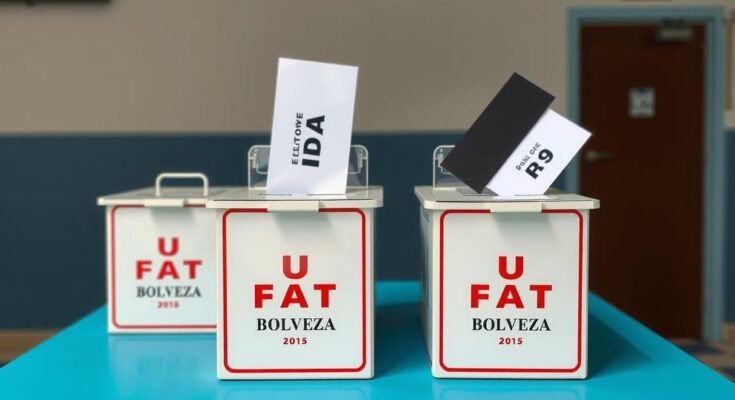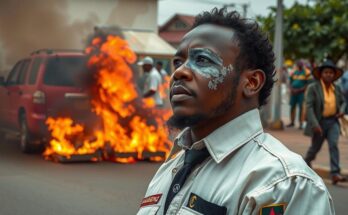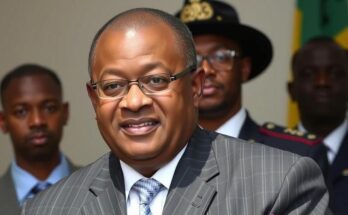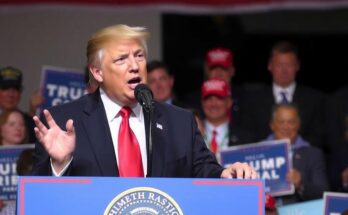Bolivia is holding contentious elections for its judiciary, with public apathy evident amid electoral and political uncertainties. This election, unique in its implementation among nations, has faced criticism for its potential to undermine judicial independence. Complications arise from the political rivalry between President Luis Arce and former President Evo Morales, further intensifying scrutiny over the election process and judicial legitimacy.
Bolivia is witnessing a divisive judicial election that has attracted controversy and voter apathy. Candidates have subtly promoted themselves in unconventional ways, such as displaying their images on snack packaging and embedding slogans in voting materials, compensating for the widespread unfamiliarity with candidates. Bolivia uniquely conducts elections for its judiciary, a move that has drawn international scrutiny for potentially undermining democracy.
Former President Evo Morales revamped the judiciary in 2009, a decision mirrored by Mexico’s recent overhaul under President Andres Manuel Lopez Obrador amid significant public dissent. Critics argue that electoral processes may subvert judicial independence, leading to biased ruling that favors the government.
The electoral system has been called into question, especially by young voters like Marisol Nogales, who indicated a lack of knowledge to make an informed decision, stating, “I’ll flip a coin.” Even judicial leaders display hesitance when defending this election model, citing its contentious nature.
The impetus for the current elections was complicated by internal power struggles within Bolivia’s political sphere, where President Luis Arce and Morales engage in a struggle for dominance. The postponement of the elections by the Constitutional Court, which is aligned with the current administration, has faced criticism from various sectors, including the Inter-American Court of Human Rights.
As the country prepares for what will be a partial election, with only four of the nine court positions available, concerns remain about the overall legitimacy and transparency of these selections. Historical patterns indicate likely low voter turnout, reminiscent of previous judicial elections that left many citizens disillusioned with the process.
The convoluted political landscape in Bolivia serves as a cautionary tale for Mexico’s leadership, which is closely observing the potential consequences of its own judicial reform. The outcome of Bolivia’s election may have broader implications for the integrity of the judicial system and its role in governance.
In Bolivia, a controversial electoral system has emerged for selecting judicial officials, aimed ostensibly at enhancing democratic processes. However, public sentiment among the electorate has been largely negative, resulting in significant distrust and widespread disinterest. Bolivia stands alone in its approach to judicial elections, setting a precedent that Mexico is now exploring. The backdrop of these elections consists of significant political tug-of-war between former and current leaders, further complicating the nature of the judicial appointments and their respective impacts on democracy.
The upcoming judicial elections in Bolivia are framed by a myriad of challenges, including public apathy, political maneuvering, and questions over the integrity of the process. Voter engagement appears bleak, with many expressing confusion over candidates, while critics caution that the politicization of the judiciary erodes democratic values. As Bolivia prepares for this electoral event, its implications ripple beyond the nation, capturing the attention of nearby countries like Mexico, which contemplates similar reforms and potential consequences.
Original Source: www.voanews.com




